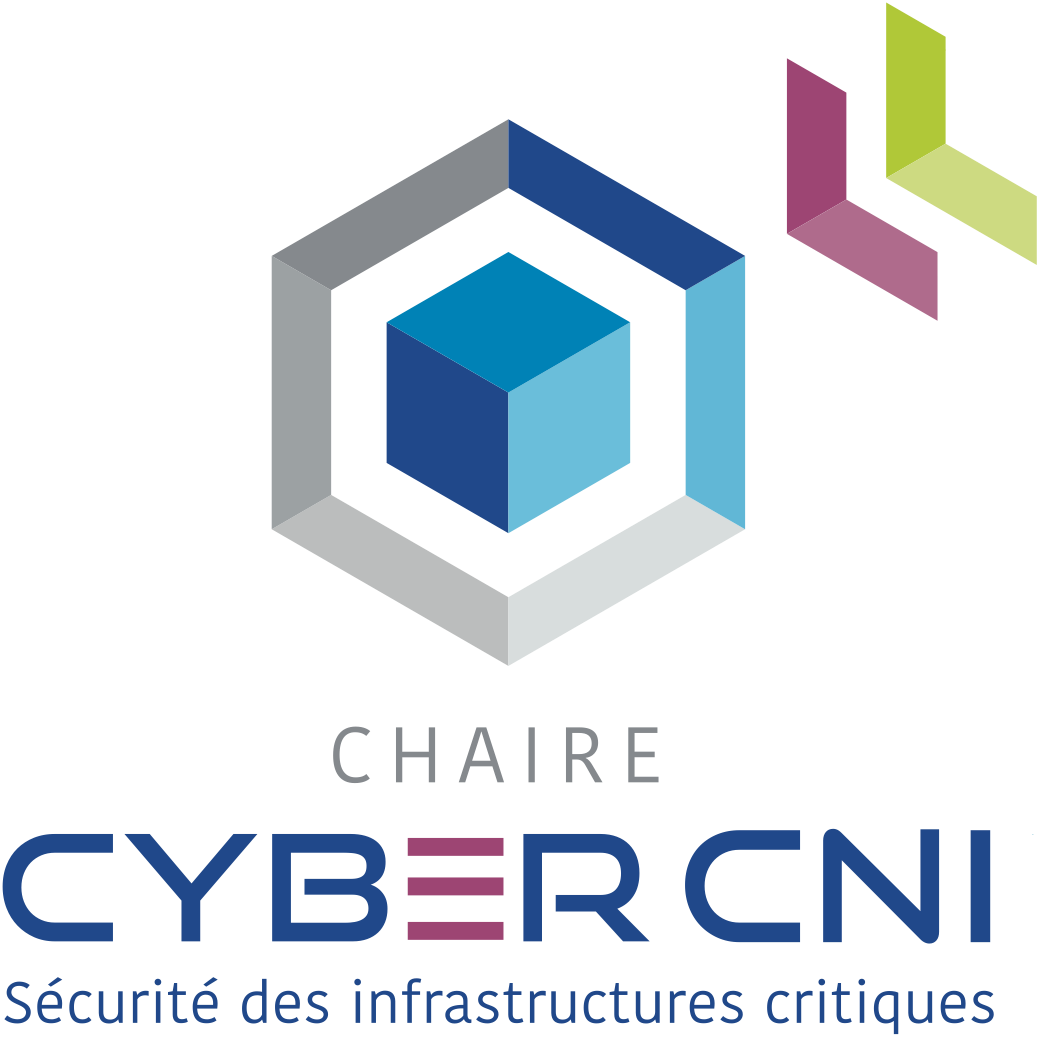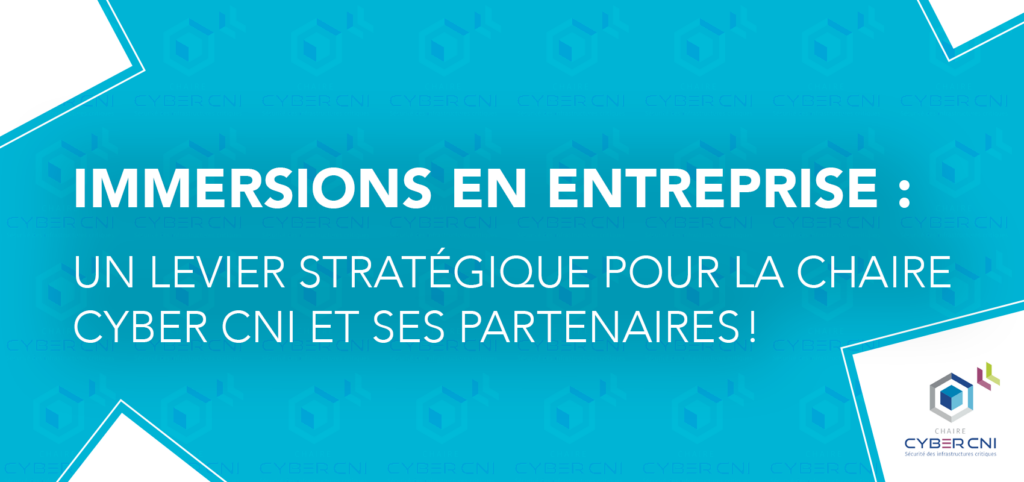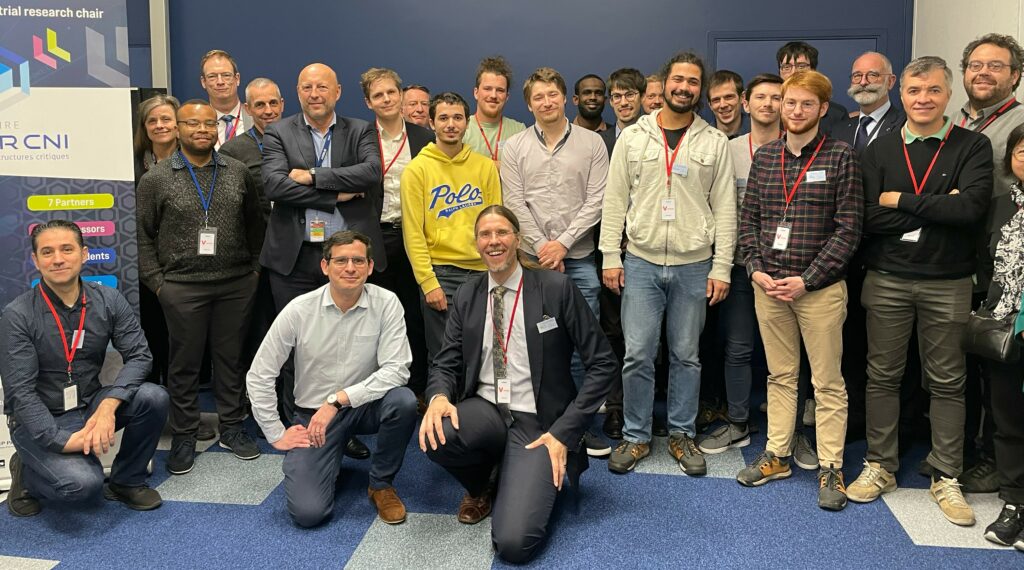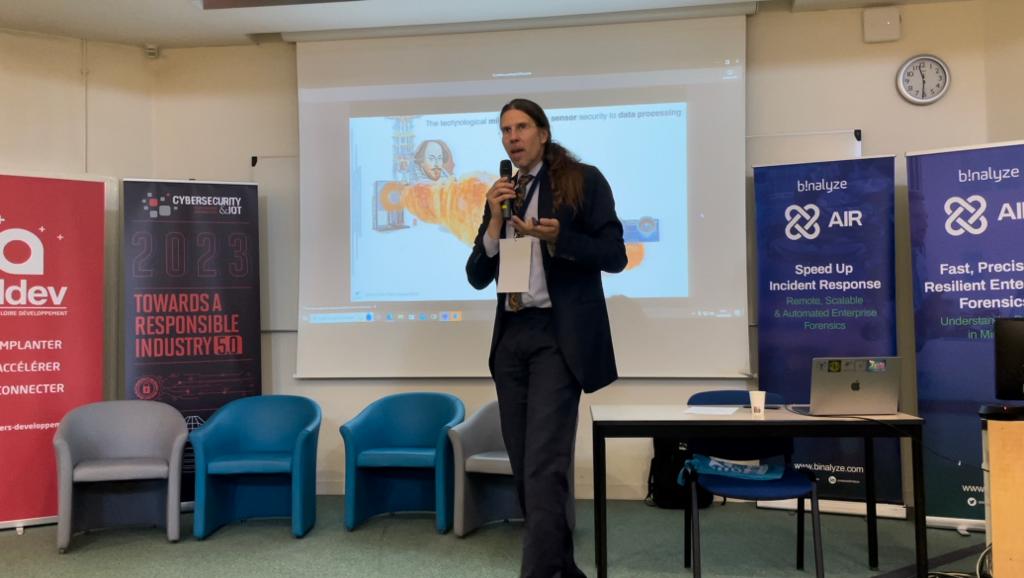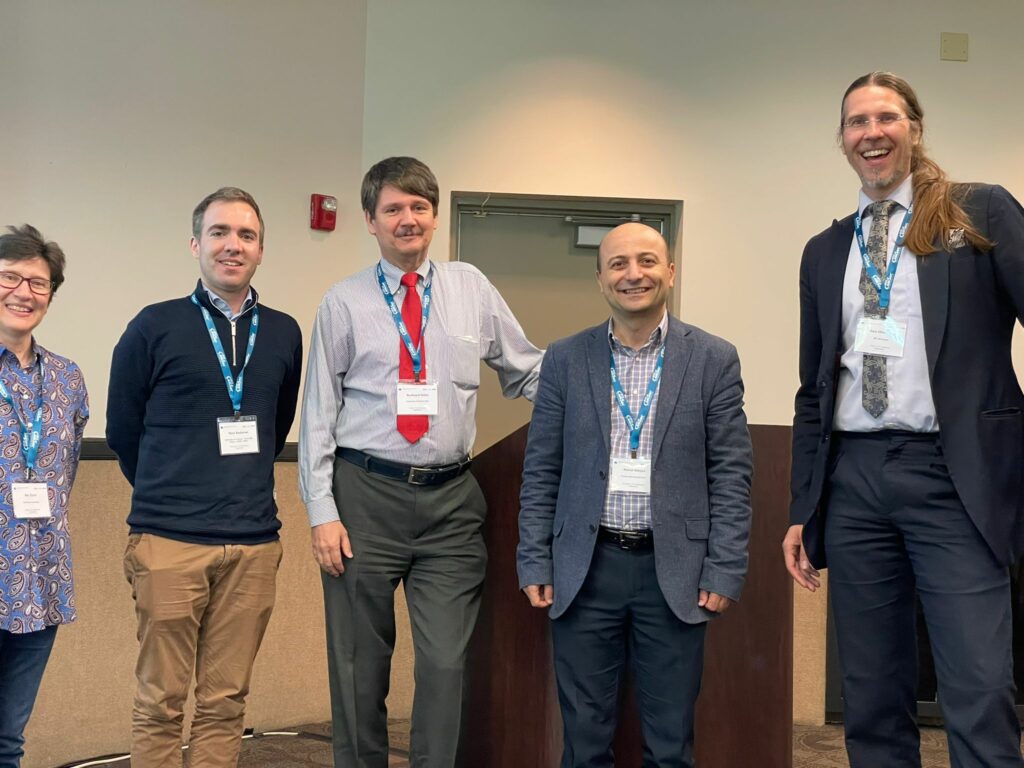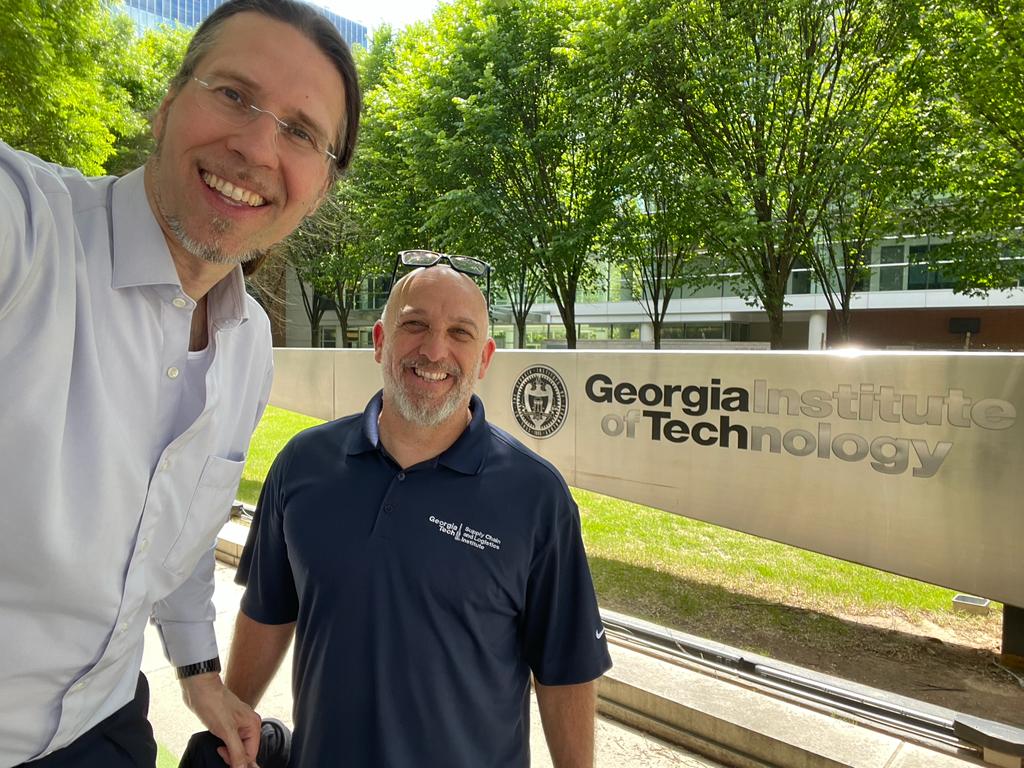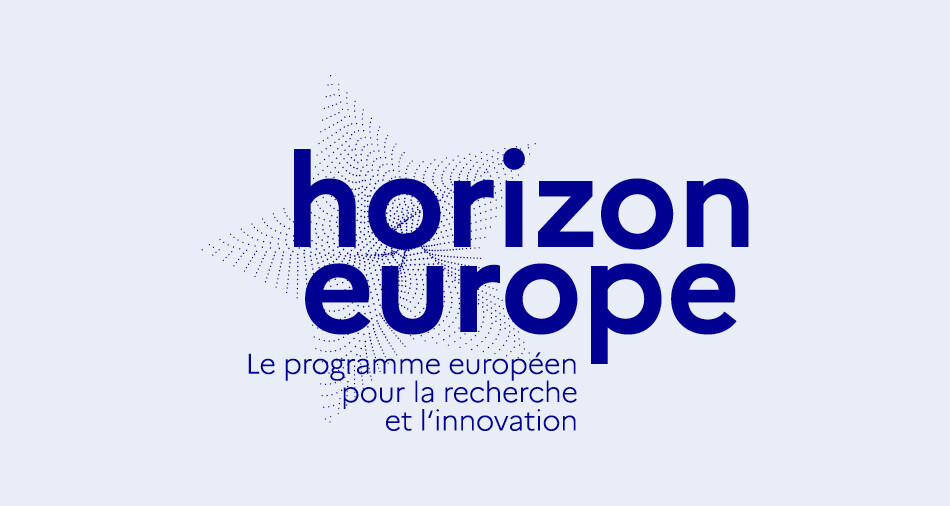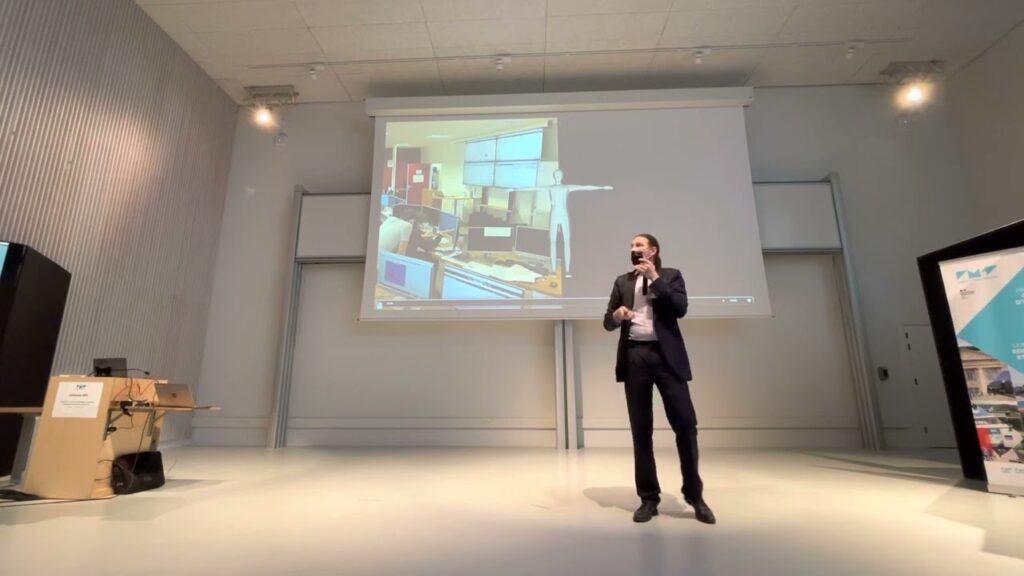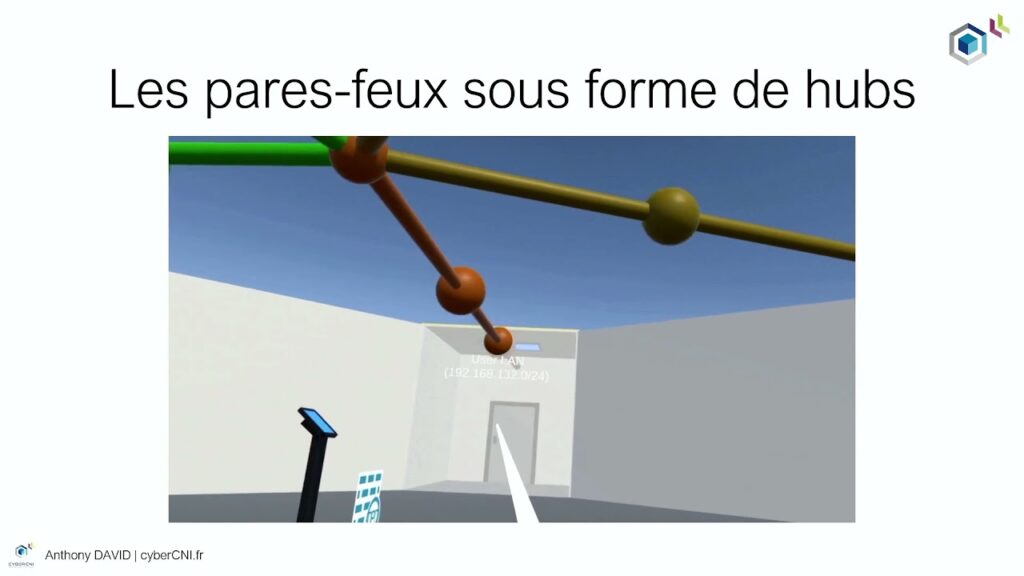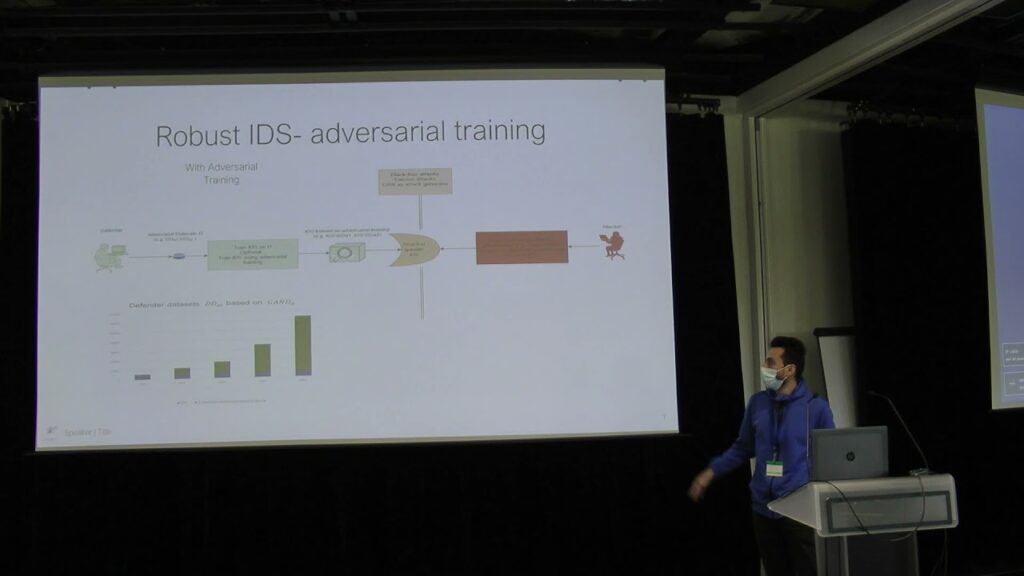Dans le cadre de ses collaborations avec des partenaires industriels, la Chaire Cyber CNI encourage les immersions en entreprise pour ses doctorants. Ces expériences uniques renforcent les synergies entre le monde académique et industriel, favorisant l’échange de connaissances et le développement de solutions concrètes face aux défis croissants de la cybersécurité.
Institut Mines-Télécom’s industrial chair Cybersecurity for Critical Networked Infrastructures (cyberCNI.fr) held its bi-annual “Research Update” event on November 9, 2023, at the Airbus Defense and Space facility in Elancourt. The event brought together key industry members, experts, and researchers to discuss the latest advancements in cybersecurity for critical networked infrastructures.
La chaire industrielle Cybersecurity for Critical Networked Infrastructures (cyberCNI.fr) de l’Institut Mines-Télécom (IMT) a organisé son événement bi-annuel “Research Update” le 9 novembre 2023, au sein des installations d’Airbus Defense and Space à Elancourt. L’événement a réuni des acteurs clés de l’industrie, des experts et des chercheurs pour discuter des dernières avancées en matière de cybersécurité pour les infrastructures critiques.
End of May 2023, our chairholder Marc-Oliver Pahl was giving a keynote on “The technological millefeuille: from sensor security to data processing” at the International Symposium on Cybersecurity and IoT at the ESAIP engineering school.
At the Network Operations and Management Symposium (NOMS) 2023, our chairholder Marc-Oliver Pahl organized a round table on the topic “Cybersecurity as Central Factor towards Resilient Networks and Services”. The session was well attended with more than 50 participants and lots of interesting discussions. Once again, the session pushed the important topic cybersecurity in the community.
Beginning of May 2023, our chairholder Marc-Oliver Pahl visited the Supply Chain and Logistics Institute of Georgia Institute of Technology.
The CyberSecDome project, led on the IMT Atlantique side by Marc-Oliver Pahl, has been accepted under the extremely competitive European call for projects “Improved monitoring of threats, intrusion detection and response in complex and heterogeneous digital systems and infrastructures” (HORIZON-CL3-2022-CS-01). CyberSecDome will integrate advanced virtual reality to extend the capabilities of security solutions, with the aim of enhancing the security, privacy and resilience of digital infrastructure.
At the occasion of the IMT symposium on “Crisis Management and Digital Technologies: new Threats and new Solutions”, our chairholder Marc-Oliver Pahl gave a keynote on “Cybersécurité collaborative renforcée par la réalité virtuelle pour les infrastructures critiques” / “Virtual reality-enhanced collaborative cybersecurity for critical infrastructures”. Watch the video here: https://youtu.be/9_MhJQF9W3o
On Sep 21, 2021, we had the pleasure to visit our partner EDF in Paris Palaiseau. Today, Nicolas and Anthony present their work on virtual reality for cybersecurity.
On Sep 21, 2021, we had the pleasure to visit our partner EDF in Paris Palaiseau! Here is another highlight presentation:
Hassan CHAITOU, Security risk optimization for learning on heterogeneous quality data
A classifier is a component used in the automation of “decision-making” or complex data abstraction: intruder detection, speed limitation extraction. For an efficient classifier, the training must be on a large volume of data and be renewed over time by integrating or revoking certain learning data. From a security point of view, this process represents a risk since it offers the attacker various ways of degrading classifier performance (either by forcing classifications mischievous, either by randomly degrading its performance). These two types of attacks require more or less effort from the attacker.
This risk is exacerbated when data comes from sources (network equipment, organizations) corresponding to heterogeneous trust levels. Hassan’s thesis aims at controlling the risk associated with this update via game theory in the case where the confidence in the learning data is not homogeneous.
